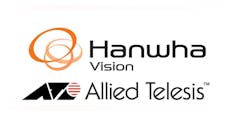In an age where the value of data is at all-time, issues surrounding privacy and security of user information have been brought to the forefront. This is especially true in the video surveillance industry in which the protection of data being generated by ubiquitous cameras is being increasingly scrutinized by privacy watchdogs and government regulators.
In fact, within the public sector, groups like the American Civil Liberties Union (ACLU) have been demanding that local and state authorities establish strict rules that clearly establish who has access to video data and what they’re allowed to do with it. There have also been calls for law enforcement agencies across the country to forgo using advanced technologies, such as facial recognition, over concerns that they are further eroding the privacy of American citizens. Amazon was even recently publicly pressured by some of its shareholders to stop selling its facial recognition software to the government.
Even in the brave new frontier of artificial intelligence (AI) and machine learning, which many believe will fundamentally alter the video surveillance landscape moving forward, there have been calls for tighter government regulation of the technology, even from tech giants themselves such as Microsoft.
Milestone Systems, one of the world’s leading developers of video management software, took a stand of its own Tuesday as it relates to the responsible use of surveillance technology, announcing at its annual MIPS (Milestone Integration Platform Symposium) conference in Nashville that it would including a new “Copenhagen Clause” in its end-user licensing agreements.
According to Tim Palmquist, VP for the Americas at Milestone Systems, the idea behind the clause was borne out of the “Copenhagen Letter,” a document published in 2017 and signed by over 150 individuals representing companies from around the world that calls for organizations to consider the impact of technology on humans ahead of what it could potentially do for their business or profits.
“We recognize that our technology has never been more powerful than it is today and with that, we should consider some responsible use positions both because of the power of the technology and some of the conversations we’re having globally in the marketplace,” Palmquist says. “We should answer questions, such as who do we sell to? Who do we partner with? And, what is our technology used for?
Though the company initially addressed issues surrounding responsible use of their technology via language included in their end-user licensing agreements in 2008, Palmquist says they decided last year that it was time to strengthen their position and put more focus on what they wanted to say about the subject. In a separate interview with SecurityInfoWatch on Tuesday, Palmquist said Milestone has always had a position on how people should ethically use their technology, however; the development of the Copenhagen Letter gave the company a guide for how they wanted to frame the language in the clause.
He also noted that the creation of the clause wasn’t targeted at one particular entity within the security industry.
“I think when you talk about responsible use it is better not to target any one particular company, country or product. That becomes pretty laser-focused and hard to adopt from that position,” he explains. “Instead, you should take broader language recognizing that as we’re having this conversation in the Americas, it might be different in the U.S. than it is somewhere else in the Americas or around the world. Inevitably, the conversation is different in EMEA (Europe, Middle East and Africa) than it is in APAC (Asia-Pacific), than it is here in Nashville today.
The Cloud Journey
Another key theme during Tuesday’s keynote addresses at MIPS focused on Milestone’s cloud strategy. Despite reports to the contrary, Palmquist said that the company is not “sitting out” cloud.
“Nothing could be further from the truth,” he says. “We’ve been investing in preparing for the development of the cloud for many years, even sacrificing some of our capabilities to develop our client-server products you understand today.”
Milestone’s dedication to cloud development, according to Palmquist, also extends to all of the companies in the Canon portfolio. “We are in full support of all of the investments by the Canon family of companies on the journey to cloud, including that company in southern California known as Arcules. Their mission is to build new generation enterprise cloud with an IoT framework and they have the opportunity to go fast.”
While Milestone and Arcules may operate independently, Palmquist pointed out that Lars Thinggaard, Milestone’s President and CEO, also serves as Chairman of Arcules. “I don’t think people realize that,” he says. “So even though we’re different entities, we are very connected in our ambitions moving forward.
For their part, Palmquist says that Milestone is taking a more hybrid approach to the cloud that involves helping end-users migrate from the classic client-server environment to cloud-based architectures.
“The definition of cloud is really viewed in many different ways and not exactly well-defined. The journey out of client-server, as we unpack what we understand today, can be really interesting and richly rewarding, he adds. “We think this makes a lot of sense because when you look at the product of today, XProtect, we together sell a lot of licenses and nothing is going to change in that equation tomorrow.”
While the future of surveillance may indeed be in the cloud, Palmquist, using the different versions of Milestone’s own code base as example, emphasized that technology in the security industry lasts for a long time and that it will take some time for the industry, especially in the enterprise environment, to make the transition.
“We recognize as well that it will take many years before cloud, in that iteration, will be able to catch up with the reliability and functionality of client-server as we understand it today,” he says. “That’s a practical reality, meaning that all of this is a journey.”
About the Author:
Joel Griffin is the Editor of SecurityInfoWatch.com and a veteran security journalist. You can reach him at [email protected].


